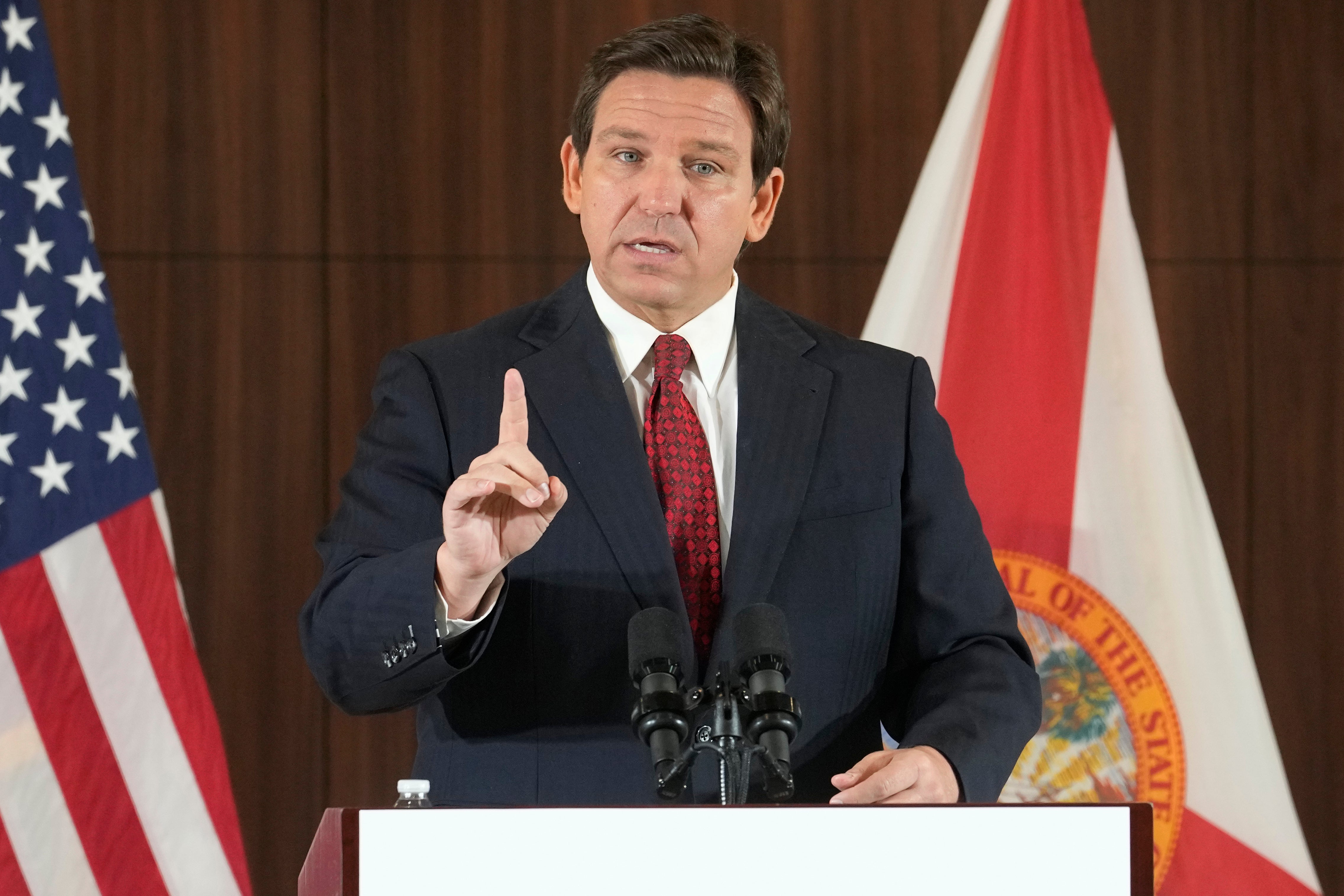Florida eases path for death penalty after Parkland verdict
A Florida bill ending the unanimous jury requirement in death penalty sentencing is now law after Gov. Ron DeSantis signed it in a private ceremony Thursday

Your support helps us to tell the story
From reproductive rights to climate change to Big Tech, The Independent is on the ground when the story is developing. Whether it's investigating the financials of Elon Musk's pro-Trump PAC or producing our latest documentary, 'The A Word', which shines a light on the American women fighting for reproductive rights, we know how important it is to parse out the facts from the messaging.
At such a critical moment in US history, we need reporters on the ground. Your donation allows us to keep sending journalists to speak to both sides of the story.
The Independent is trusted by Americans across the entire political spectrum. And unlike many other quality news outlets, we choose not to lock Americans out of our reporting and analysis with paywalls. We believe quality journalism should be available to everyone, paid for by those who can afford it.
Your support makes all the difference.Florida Gov. Ron DeSantis signed a bill Thursday ending a unanimous jury requirement in death penalty sentencing, a response to a verdict that spared the life of a school shooter who killed 17 people.
DeSantis, a Republican, signed the bill in a private ceremony with families of victims of the 2018 Marjory Stoneman Douglas High School massacre in Parkland.
The new law, which went into effect as soon as the governor signed it, allows capital punishment in Florida with a jury recommendation of at least 8-4 in favor of execution. Only three states out of the 27 that impose the death penalty do not require unanimity. Alabama allows a 10-2 decision, and Missouri and Indiana let a judge decide when there is a divided jury.
“Once a defendant in a capital case is found guilty by a unanimous jury, one juror should not be able to veto a capital sentence,” DeSantis said in a statement. “I’m proud to sign legislation that will prevent families from having to endure what the Parkland families have and ensure proper justice will be served in the state of Florida.”
The governor pushed for the legislation after a divided 9-3 jury spared Parkland school shooter Nikolas Cruz from execution in a verdict last year that outraged victims' families. Cruz instead received a life sentence without the possibility of parole.
“A few months ago, we endured another tragic failure of the justice system. Today’s change in Florida law will hopefully save other families from the injustices we have suffered,” said Ryan Petty, whose 14-year-old daughter Alaina was killed in the shooting.
The legislation easily passed in the Republican-dominated statehouse. Some Democratic critics had argued the state should not make it easier to send people to death row in reaction to the Cruz case.
DeSantis, an expected presidential candidate, had included the legislation as part of a larger criminal justice package he described as a counter to the “soft on crime” policies in Democrat-led states, a move aimed at conservative voters who typically decide Republican primary contests.
For decades, Florida had not required unanimity in capital punishment, allowing a judge to impose capital punishment as long as a majority of jurors were in favor of the penalty. But in 2016 the U.S. Supreme Court threw out state law, saying it allowed judges too much discretion.
The state Legislature then passed a bill requiring a 10-2 jury recommendation, but the state Supreme Court said such recommendations should be unanimous, prompting lawmakers in 2017 to require a unanimous jury.
Three years later, the state Supreme Court, with new conservative jurists appointed by DeSantis, rescinded its earlier decision and ruled that a death recommendation does not need to be unanimous. Florida’s unanimity standard had remained untouched, though there was no overwhelming desire to change state law before the Cruz case.